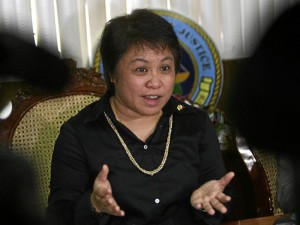Tax collection by the Bureau of Internal Revenue grew by more than 20 percent in August from a year ago, but fell marginally short of the goal for the month.
The year-on-year increase was credited to tighter audits that were meant to better detect tax evasion and under-declarations of income.
The Department of Finance, the parent agency of the BIR, on Monday reported that tax collection by the tax bureau reached P118.11 billion in August, up by 22 percent from P96.76 billion in the same month last year.
The goal for the month was set at P118.48 billion.
The latest performance brought the BIR’s total collection for the first eight months of the year to P811.92 billion, up by nearly 16 percent from P701.44 billion in the same period last year.
This eight-month collection, however, was 3-percent short of the P839.5 billion target for the period.
The BIR, nonetheless, said its full-year collection target of P1.253 trillion remained attainable.
Accounting for about 60 percent of the national government’s revenues, the BIR is under pressure to meet its goal to help finance the state’s expenditure program.
Finance officials have set the budget deficit ceiling for this year at P238 billion, or 2 percent of the projected gross domestic product for the year.
This year’s revenue target of the BIR is nearly 18-percent higher than its actual collection of P1.066 trillion last year. Last year was the first time that the bureau’s collection breached the P1-trillion mark.
Revenue Commissioner Kim Henares earlier said the tax bureau would continue with its anti-tax evasion programs in order to meet the full-year target.
One of the programs is an ad campaign against tax evasion, where it publishes list of companies and commercial establishments per industry that pay the highest and the lowest amounts of taxes.
Another is the Run After Tax Evaders (RATE) program, under which tax evasion cases are filed every two weeks.
The World Bank said in a report last week that the government had to continue increasing its tax collections in order to afford vital development projects, led by infrastructure.
Poor infrastructure has often been cited by economists for dragging down the Philippines’ competitiveness in attracting foreign direct investments.
The World Bank has estimated that around P450 billion in potential government revenues is lost every year due to tax evasion and under-declaration of incomes.
It has challenged the Philippine government to further intensify its drive against tax evasion so that it can trim revenues losses by half.


